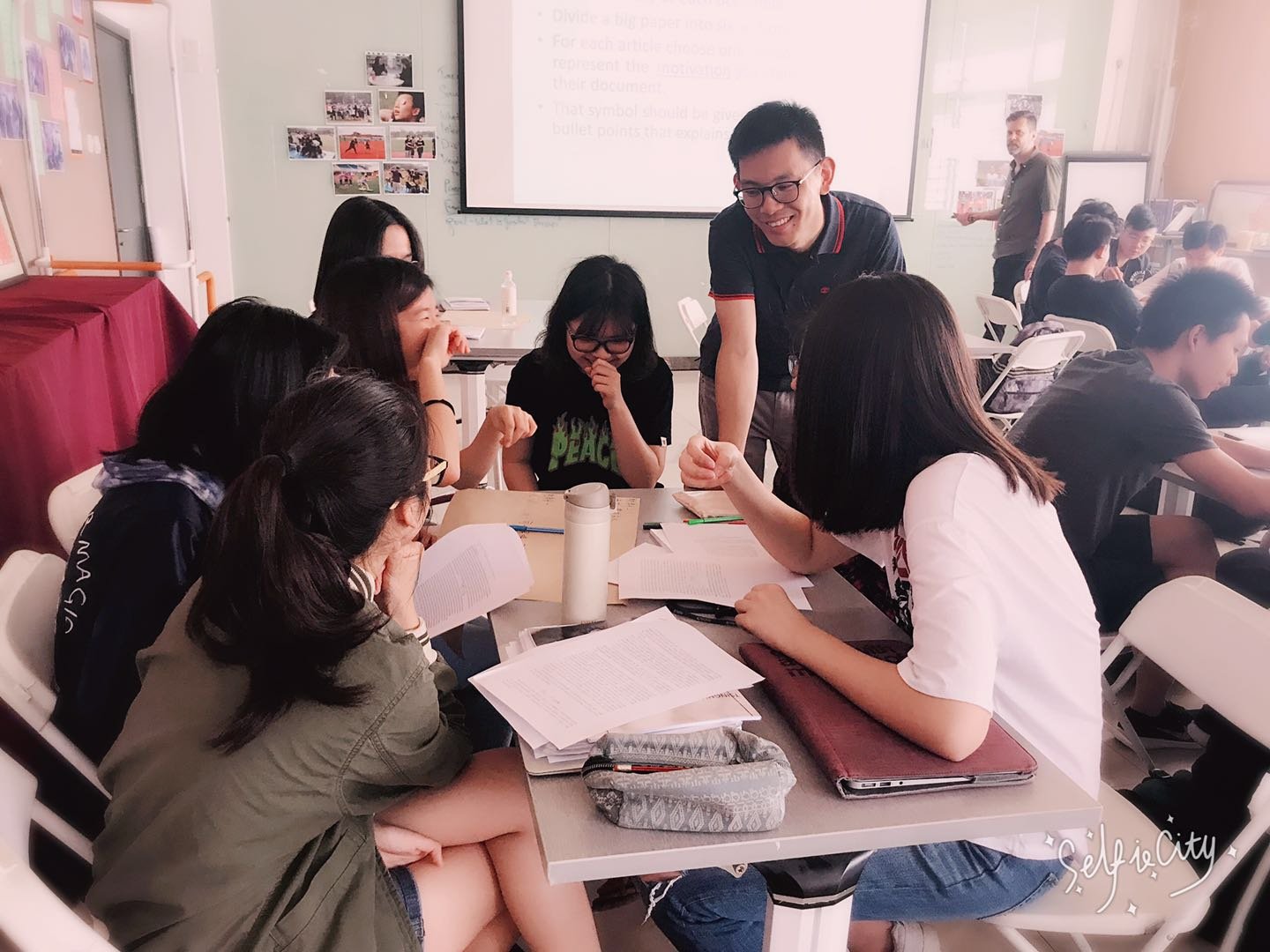
With partnerships all over the world, Facing History is a global organization. Learn about what Facing History looks like in China from Rajesh Kripalani and Georgia Barker, two program fellows teaching in Shanghai and Beijing, respectively. Facing History Fellows are Facing History teachers who act as liaisons between the program team and the work being done in other countries and regions such as China. Kripalani is the Teaching And Learning Coach, Head of Social Studies and IB History, Global Politics and Theory of Knowledge Coordinator at Fudan International School. Barker is a social studies teacher at Tsinghua International School.
What type of impact does Facing History have on students? What have students been most interested in discussing?
Rajesh: The beginning of the Scope and Sequence that focused on Identity is what grabs my students most. It helps them to pause and think about themselves in the context of the world they live in. Although the school is predominantly Asian, it is a diverse multicultural school and they have been able to recognize and celebrate differences among their peers while looking at themselves as unique individuals. This has further helped them to access the nuances of the histories that we study, making rich connections between the local and global events, recognizing the powerful impact of choices in their lives as well as in the lives of the actors they encounter in history.
Georgia: When I explain Facing History’s pedagogical triangle to my students so they know that they are expected to engage not only intellectually but also emotionally and ethically, this is often an entirely new concept for them. Students sometimes question, “If we’re supposed to be studying history, why am I spending so much time exploring myself and my own identity?” but then as we progress through the course, it becomes clear. I love hearing them make connections to their own lives and current affairs. One of the biggest impacts Facing History has had on my students is on their ability to recognize and value diversity, especially in Chinese society which is often represented in media and popular society as being a homogenous entity.
Are there any cultural challenges to teaching Facing History in China? How have you addressed these in the classroom?
Rajesh: Out of respect for the political culture in China, there has been a need to be mindful of the sensibilities of local educators. Because Facing History has such a wide and diverse range of resources, it has not been difficult to select those that allow such considerations without compromising the depth of discussions or the rigor of the workshops. We have also explored history as a medium to model teaching approaches and strategies that teachers have been able to deploy in their own practice without hesitation, which have been very well received.
Georgia: As a foreign educator and therefore also an immigrant, it is very important that I am respectful of and abide by the laws of the People’s Republic of China. Therefore, it’s essential that I do not push any political agenda. In the US or in the UK, promoting an informed democracy would not be seen as a political agenda, however here it China it would be considered so. Instead, we focus on encouraging and developing empathy, compassion, critical thinking, literacy, and emotional engagement, which are important for citizens of any nation, regardless of the political system.
How have you used Facing History to address Chinese history?
Georgia: Recently, my colleagues and good friends Kyle Schaefer and Qian Chao collaborated on a brilliantly effective lesson on the Nanjing Atrocities for our current 11th graders before their visit to Nanjing. As a local Najinger, Chao started the class with his own experiences growing up. Kyle introduced the essential questions, and they then used Facing History’s “jigsaw” teaching strategy to allow students to read and discuss primary source documents in both English and Chinese. Learning history from multiple perspectives in both English and Chinese, students developed a nuanced and complex understanding of a very difficult and tragic part of history.
What do conversations about Choosing to Participate look like in Chinese classrooms?
Georgia: In a country where citizens are not entitled to vote, and where the concepts of “taking a stand” or being an “upstander” may bring up painful memories for the parents and grandparents of students (think of the Cultural Revolution or the Red Guards, for example), Choosing to Participate looks a little different in Chinese classrooms, whilst remaining an essential stage of the scope and sequence. Although the cultural context of Facing History is very different in China, Choosing to Participate is no less important. Similar to Choosing to Participate in American classrooms, in China we think of ways we can be upstanders in our everyday lives by choosing to act with empathy and compassion for others.
Learn more about our international programs and how we work with teachers around the world to help students make connections between history and their own lives. We are dedicated to giving teachers everywhere the tools they need so students can think critically about their own ability to make an impact in their communities.
Photo Credit: Bai Wenting


